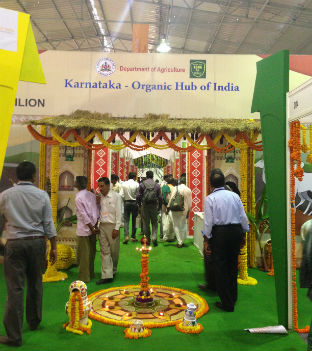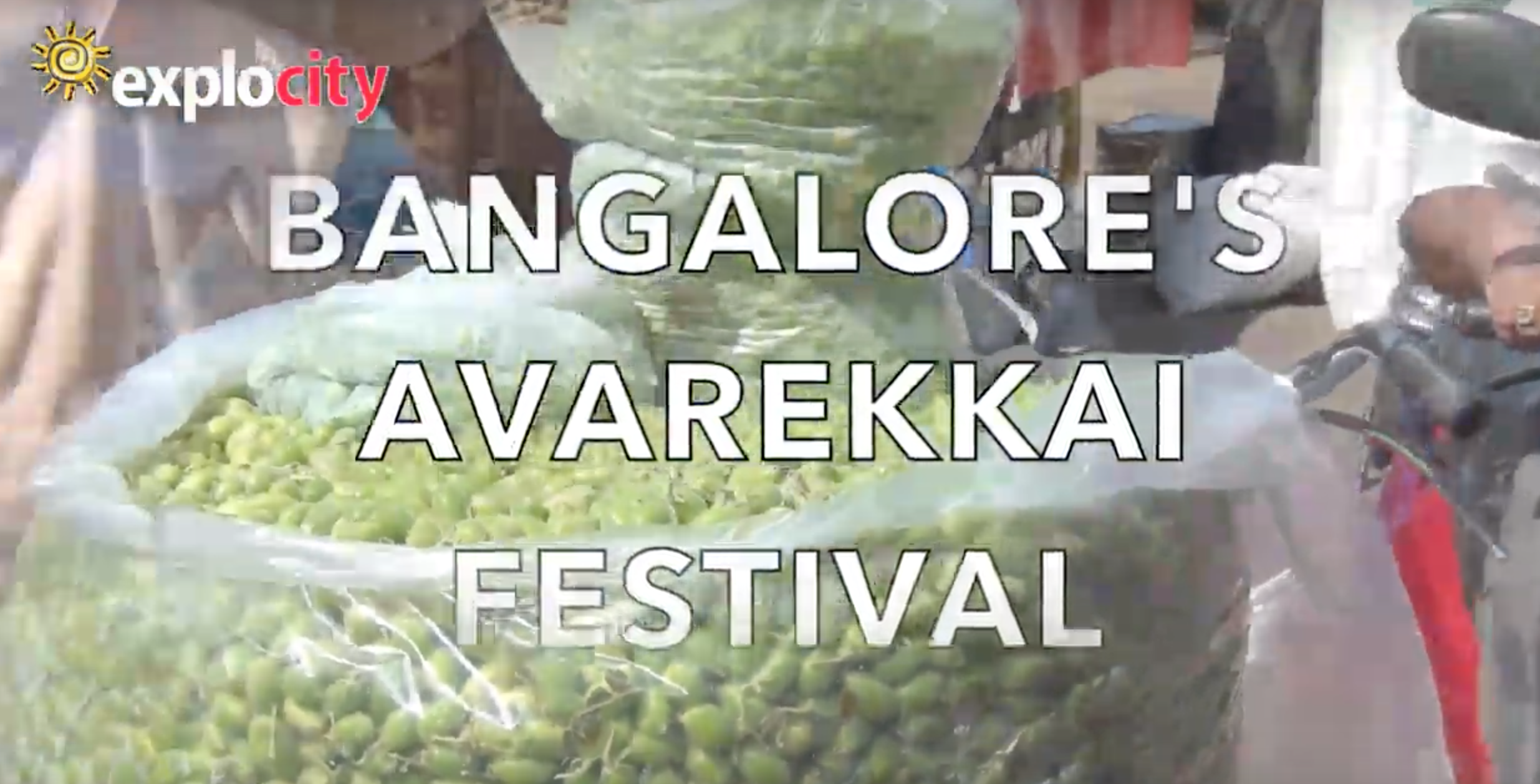Bangalore Appreciates Organic Agriculture
Oct 11, 2019, 11 38 | Updated: Oct 11, 2019, 11 38
To put it simply, organic agriculture is agriculture without the use of chemical fertilizers and pesticides. And if the BioFach India 2013 is anything to go by, Bangalore is pro-organic.
For the third year in a row, the city hosted the country’s biggest International Organic Trade Fair, BioFach India. Their aim is to create a single platform that will bring together organic stakeholders from all over India and abroad.
The fifth edition of BioFach India 2013 has successfully run its three day course at the Bangalore Palace grounds, from November 14 -1 6. Famers, traders, buyers – both international and domestic, consumers, homemakers and even schools were participants of this Trade Fair.
“BIOFAC India is a little different from the normal trade fairs that take place. The original fair in Germany does not allow consumers or school children because it has matured to that level where only traders can come. But today India is perhaps where Europe was 25-30 years back. So we too have to start with everything at the primary level. There will be farmers, there will be businesses, there will be homemakers and consumers so that the whole chain is completed,” said Manoj Kumar Menon, Executive Director of International Competence Centre for Organic Agriculture (ICCOA), India.
BioFach Germany is the original event. The growth of organic markets around the world has made it global. BioFach is held in Japan, United States, South America, China and India. German based exhibition organisers Nürnberg Messe India Pvt Ltd in collaboration with the Department of Agriculture, Government of Karnataka and ICCOA have taken the initiative to bring BioFach to India.
The first two editions of the Trade Fair were held in Mumbai, after which it was moved to Bangalore. “I would rate Bangalore to be much more aware (of organic agriculture) as compared to maybe Delhi or Mumbai. This is the third edition in Bangalore and we have to admit that the appearance of organic food on the shelves is much more than compared to the other metros,” says Sonia Prashar, MD of Nürnberg Messe India Pvt Ltd.
Around 150 exhibitors showcased their products, which varied from food to textiles and even beauty and wellness. This included about 10 state pavilions like Himachal Pradesh, Nagaland, Meghalaya, Orissa, Kerala, Tamil Nadu, Uttaranchal and of course, Karnataka which had the biggest pavilion considering the Government of Karnataka was a co-organiser. Delegates from almost all the states of the country were also present at the fair.
“We are expecting about 7500 visitors,” said Prashar on November 15. “Last time we had just a little above 7000, but this time 7500 is the expected number, which also includes a lot of farmer groups. The whole purpose is to link those farmer groups to the companies who are here and ready to export, and at the same time link them to some expert buyers also,” she said.
Apart from farmer groups, the exhibition also welcomed a lot of domestic as well as international buyers from Germany, Italy, UK, Netherlands, Indonesia, USA, Berlin and South Korea.
In addition to the central exhibition, there were also events like workshops for farmers, live cooking, school quiz competitions and consumer programs to create awareness among the mass. “We are just trying to touch upon every section of the society that will make a difference for the promotion of organic food and organic way of living,” said Prashar.
Around 20 schools participated in the quiz and essay competitions at the Trade Fair. “School children are very good ambassadors of such new messages. Being environmental friendly, climatic changes, these are things kids understand very carefully,” said Menon.
Workshops for farmers were conducted in regional languages on topics such as how to convert an intensive farm into an organic one, how to become a certified organic farmer, how to talk to buyers and conduct business.
Though farmers may not necessarily find a buyer for their products, they are still accepting organic agriculture. “Organic is not only for markets. There are also many farmer groups who are doing it for the sustainability part of it. They understand that going organic has other values. The farms become better because the soil fertility increases. So organic agriculture, it’s also a way of life,” explained Menon.
And the proof is in the numbers. “Seven-eight years back there were only 42,000 hectares certified as organic in India. Today, 10 Lakh hectares are under certified organic,” Menon told us.
When it comes to the common consumer, they are either already aware or in the process of learning. “I have to admit, I didn’t know about organic. Of course, we’ve been eating organic but we didn’t know what exactly was organic. So if a person like me could get aware by doing this Trade Fair then people who’ve been visiting will definitely get to know what is organic,” said Prashar.
“I like buying organic. But it’s not easily available in the markets. If it was, I would buy it more often,” said Shanta, a first timer at the Fair
“There is also the price to consider. Even though I like organic, I have to take into account that it is more expensive,” said Prashant, another buyer who works at the Indian Institute of Sciences.
Some of the consumers also have a green thumb. “People are doing a lot of organic gardening. We had some visitors saying that I have a terrace garden and I do some organic gardening and farming there so they were interested to see what all is being exhibited here as well,” said Prashar.
BioFach India is still in its budding years. But the people behind it have some big dreams and goals for it. Will it be like its parent fair in Germany? Yes, says Sonia Prashar. “We brought BioFach from Germany to India with the intention to make it only a B2B fair. Right now, we are just trying to add a little bit of education to it so that the awareness goes to the grass root level as well,” she said.
Menon too feels positively about the Fair’s rising success, “The fair has always been growing. You can feel people talking about it more. The presentation has also definitely improved a lot. Some of the booths are equivalent to a world-class exhibition. The produce, the packaging, the quality of packaging and the range are all expanding very substantially.”







